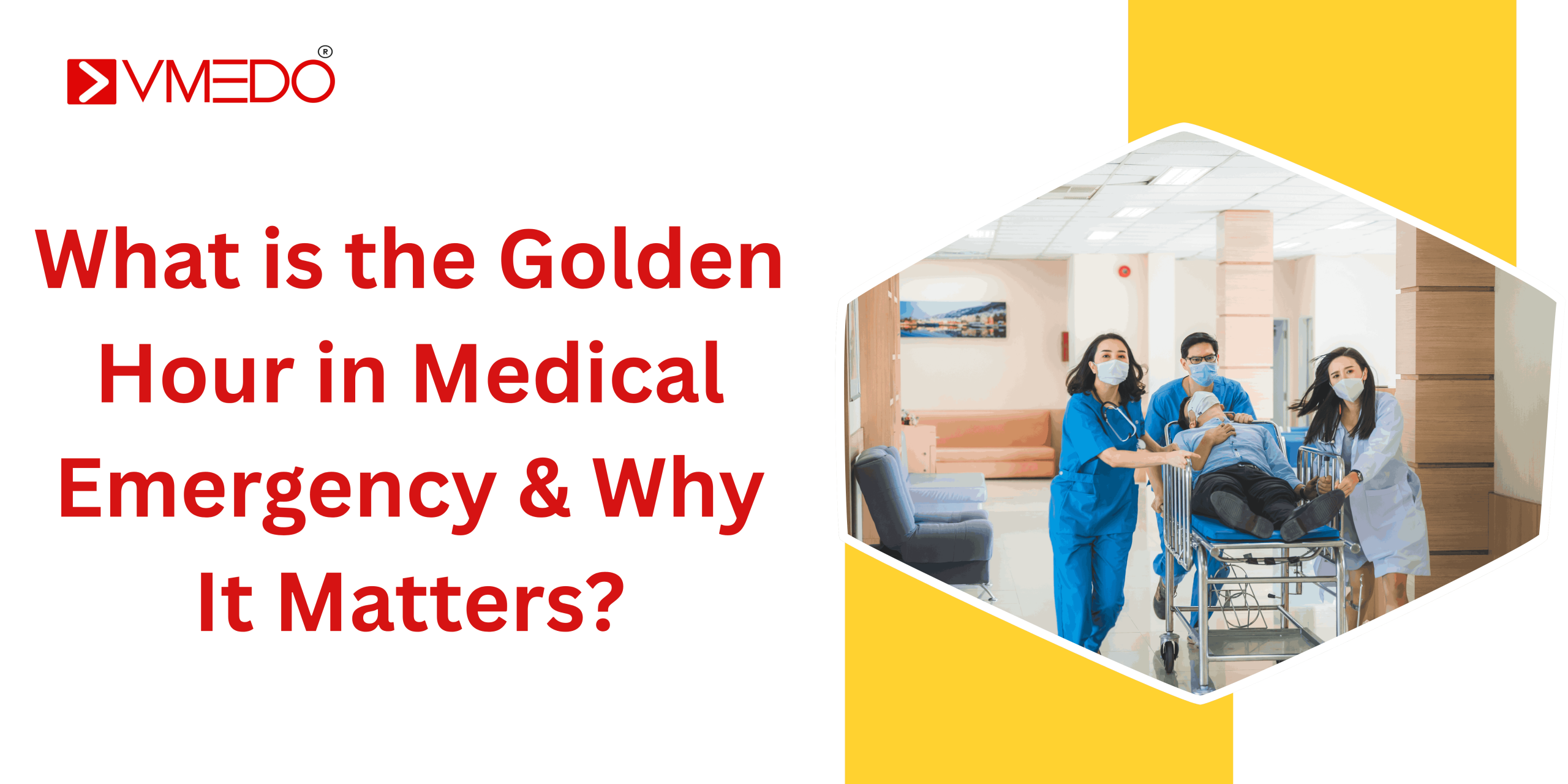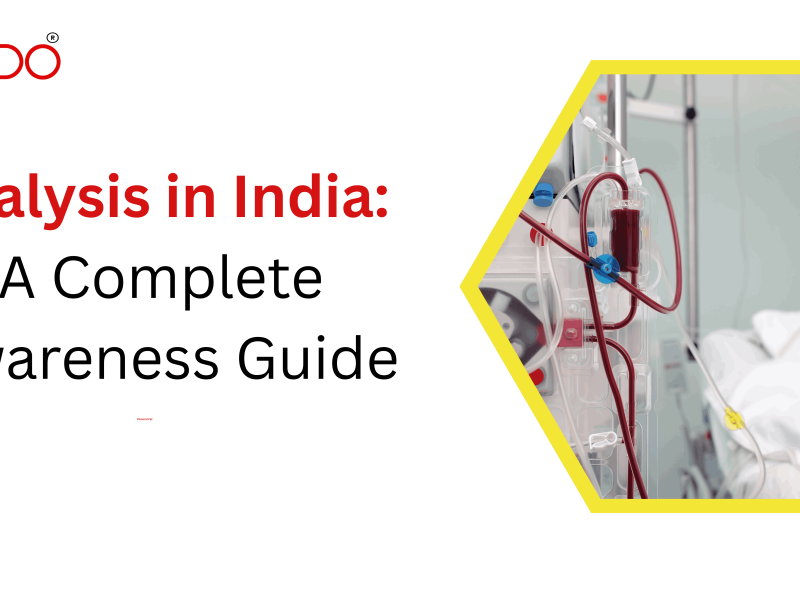Imagine this — someone suddenly collapses from a heart attack, or a major road accident happens right in front of you. What is the Golden Hour in Medical Emergency & Why It Matters isn’t just a technical phrase used by doctors — it’s a life-saving truth. The Golden Hour refers to the crucial first 60 minutes after a serious medical emergency, during which timely medical intervention can drastically increase a person’s chance of survival and recovery. In most cases, what happens during this narrow time window can determine the final outcome.
Yet many people still underestimate how quickly an emergency can escalate. The human body can compensate for trauma only for a short time before organs start shutting down and irreversible damage begins. That’s why the Golden Hour isn’t just a medical concept – it’s a race against time where every minute counts.
What is the Golden Hour?
The Golden Hour is a critical period of approximately 60 minutes after a traumatic injury or medical emergency in which prompt medical treatment can greatly increase the chances of survival and reduce the risk of long-term disability.
The concept originated in trauma medicine, but it gradually became relevant for other types of emergencies such as strokes, heart attacks, severe bleeding, and sepsis. During this initial hour, the body’s compensatory mechanisms are still active, and vital organs are still functioning reasonably well despite injury. Immediate medical interventions during this narrow window can prevent irreversible damage.
Origins of the Term
The phrase “Golden Hour” was popularized by Dr. R. Adams Cowley, an American surgeon who served in the U.S. Army during World War II and later founded the Shock Trauma Center in Baltimore. Observing battlefield casualties, he noticed that trauma patients had the best chances of surviving if they received definitive treatment within the first hour of injury.
Although the exact duration of this window may vary depending on the type of emergency, the term “Golden Hour” highlights the urgency of rapid diagnosis and timely care.
Why Is the Golden Hour Important?
1. Prevents Irreversible Damage
Many medical conditions deteriorate rapidly if not treated promptly. For example:
-
In strokes, 1.9 million brain cells die every minute until blood flow is restored.
-
In heart attacks, delay in restoring blood supply can cause permanent damage to heart muscle.
-
In trauma, uncontrolled bleeding and shock can soon lead to organ failure.
2. Improves Survival Rates
Patients treated within the Golden Hour often have significantly higher survival rates compared to those who receive delayed care.
3. Reduces Complications
Early treatment can stop the progression of disease or trauma and lower the risk of complications such as infection, multi-organ failure, or permanent neurological deficits.
4. Better Recovery and Rehabilitation
Victims of timely intervention can return to normal life with minimal rehabilitation needs, whereas delays often result in longer hospital stays, disability, and lower quality of life.
The Science Behind the Golden Hour
When a traumatic or clinical emergency occurs, the body goes into a state of physiological stress. The heart rate increases, blood vessels constrict, and the body attempts to maintain blood flow to the brain and other vital organs. However, these mechanisms are temporary.
Once the bleeding becomes severe or oxygen supply is compromised, cells and tissues begin to die. Hypoxia (lack of oxygen) and ischemia (lack of blood supply) can lead to rapid deterioration.
If medical personnel intervene quickly to restore oxygen delivery and stabilize vital signs, the body stands a good chance of recovery. But once organs start failing, reversing the damage becomes extremely difficult.
Golden Hour in Different Types of Medical Emergencies
a) Trauma and Accidents
In trauma cases (road accidents, falls, industrial accidents, gunshot wounds, etc.), the primary goal during the Golden Hour is:
-
Stop bleeding (haemorrhage control)
-
Maintain airway and breathing
-
Prevent shock
Internal or external bleeding is one of the most common causes of preventable deaths in trauma cases. If the bleeding is controlled early and the patient is stabilized, the survival rate drastically improves.
b) Heart Attacks (Myocardial Infarction)
For heart attacks, the goal during the Golden Hour is to restore blood flow to the heart muscle using clot-busting medications (thrombolytics) or opening the blocked artery through angioplasty.
Remember these symptoms:
-
Chest pain or tightness
-
Pain radiating to left arm, jaw, or back
-
Shortness of breath
-
Cold sweats or dizziness
The faster a heart attack patient receives treatment – ideally within one hour – the better the outcomes.
c) Stroke
In stroke emergencies, “Time is Brain.” The Golden Hour is critical for:
-
Administering thrombolytics in ischemic stroke patients
-
Minimising brain cell death
-
Improving neurological recovery
Recognise stroke using the FAST acronym:
-
Face drooping
-
Arm weakness
-
Speech difficulty
-
Time to call emergency services
d) Sepsis or Severe Infections
Severe infections can rapidly progress to septic shock, especially in the elderly or those with weakened immune systems. Early administration of antibiotics and fluids within the Golden Hour significantly reduces mortality.
e) Obstetric Emergencies
In conditions like postpartum hemorrhage, eclampsia, or ruptured ectopic pregnancy, rapid control of bleeding and stabilization can save two lives – mother and baby.
The Role of Emergency Medical Services (EMS)
EMS and ambulance services are vital in making the Golden Hour useful. A well-designed emergency response system ensures:
-
Rapid dispatch of ambulances
-
Trained EMS personnel providing pre-hospital care
-
Coordination with hospitals to provide definitive treatment upon arrival
In developed countries, integrated emergency systems are a standard part of public safety infrastructure. In developing regions (like many parts of India), services like VMEDO are helping bridge the gap between accident and hospital by offering time-bound and reliable emergency transportation.
Public Awareness Matters
While healthcare systems have a major role, public knowledge is equally important. The value of the Golden Hour diminishes if bystanders or the patient’s family fail to recognize the emergency, try self-treatment, or delay calling an ambulance.
What You Should Do in an Emergency
-
Stay calm and call emergency services immediately.
-
Provide accurate location details.
-
Do not move the patient unnecessarily unless there is a danger in the current location.
-
Follow instructions from EMS until help arrives.
-
Basic first-aid knowledge (e.g. controlling bleeding, CPR) can buy crucial time until professionals arrive.
Challenges in Utilizing the Golden Hour
Despite advances in emergency medicine, several factors still prevent optimal use of the Golden Hour:
| Challenge | Description |
|---|---|
| Delay in recognizing severity | Many people fail to recognize serious symptoms early |
| Traffic and distance | Long transport times significantly reduce the benefits of the Golden Hour |
| Lack of coordinated EMS | In some regions, professional pre-hospital care is difficult to access |
| Financial constraints | Fear of treatment costs delays decision making |
| Poor first-aid awareness | Bystanders often don’t know how to assist |
How Technology is Enhancing Golden Hour Utilization
In recent years, technology has played a game-changing role in improving emergency response:
-
Real-time GPS tracking in ambulances
-
Telemedicine for pre-hospital triage
-
Emergency apps (like VMEDO, 108, etc.) for quick ambulance booking
-
Automatic crash detection in newer vehicles
-
Wearable devices and IoT to alert caregivers about sudden health issues
These technologies reduce response times, improve communication, and ensure rapid access to the right facilities.
Tips to Be Prepared for Emergencies
-
Save Emergency Numbers (e.g., 108 in India, VMEDO helpline, nearest hospital numbers)
-
Attend Basic First-Aid Training at least once a year.
-
Keep a First-Aid Kit in your car and at home.
-
Know the location of nearest hospitals and trauma centers.
-
Educate family members (especially children and senior citizens) about how to act in emergencies.
-
Use health and emergency service apps for faster access.
-
Avoid unnecessary delays during serious symptoms like chest pain, slurred speech, or major bleeding.
Conclusion
In medical emergencies, time is not just precious — it is life. The Golden Hour serves as a powerful reminder that immediate action can mean the difference between complete recovery and irreversible loss. Whether it’s a severe trauma, a heart attack, or a stroke, the human body has a limited reserve of time before critical systems begin to fail. The faster appropriate treatment is delivered within this window, the higher the odds of survival and long-term quality of life.
But the Golden Hour is not only a medical concept for doctors and paramedics — it’s something every one of us should understand. Being able to recognise the warning signs of an emergency, calling an ambulance without hesitation, and knowing some basic first-aid skills could save a life before professional help arrives. As technology and emergency response systems continue to improve, our awareness and willingness to act become the most crucial link in the chain.
In short, the Golden Hour matters because it gives us a fighting chance — but only if we use it wisely. Be prepared, stay informed and remember: every minute counts.



